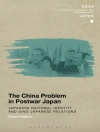Through a post-1968 perspective on the past 50 years, Performing Memory brings together case studies on new developments in the relationship between politics and visual representation—including the histories of dance, theatre, political performance and cinema—and investigates how they relate to the interlinked concepts of visuality, corporeality and mobility. Using a collective transdisciplinary attitude from within historical disciplines, and looking across to artistic fields, this volume demonstrates that memory is not merely a recollection of experience but an interactive process, in which the body, mobile and constrained, is both a point of departure and reference.
Содержание
List of Illustrations
Acknowledgements
Introduction
Luisa Passerini & Dieter Reinisch
Part I: Body in Movement/Body in Constrain
Chapter 1. Bodily Ways of Knowing and Remembering: Movement, Kinaesthesia, and Mobility
Marina Nordera
Chapter 2. Corporeality and Militant Performance during Northern Irish Prisons Protests, 1971-1983
Dieter Reinisch
Part II: Spectacle and Activism
Chapter 3. Soviet Media Spectacle: Visuality, Corporeality, and Identity in the Late 1960s and Early 1970s
Bohdan Shumylovych
Chapter 4. Bartering and Cross-Border Embodied Performances
Annelies Kuhlmann
Chapter 5. The Filmmaker as Saboteur: Found Footage and Détournement in Llorenç Soler’s Militant Films
Pablo La Parra Pérez:
Part III: Reports from the Field
Chapter 6. A Letter to the Future: Autumn Knight’s WALL (2014) and the Studio Museum in Harlem
Cori Olinghouse
Chapter 7. Philadelphia Immigration Stories: Making the Aural Visual
Janneken Smucker
Afterword
Alexander Etkind
Bibliography
Index
Об авторе
Luisa Passerini is Professor Emerita at the European University Institute, Florence, and was Principal Investigator of the European Research Council Project ‘Bodies Across Borders: Oral and Visual Memory in Europe and Beyond’ 2013-2018. She received the first All European Academies Madame de Staël Prize for Cultural Values in 2014 and she is a member of the Scientific Committee of the House of European History, Brussels.












